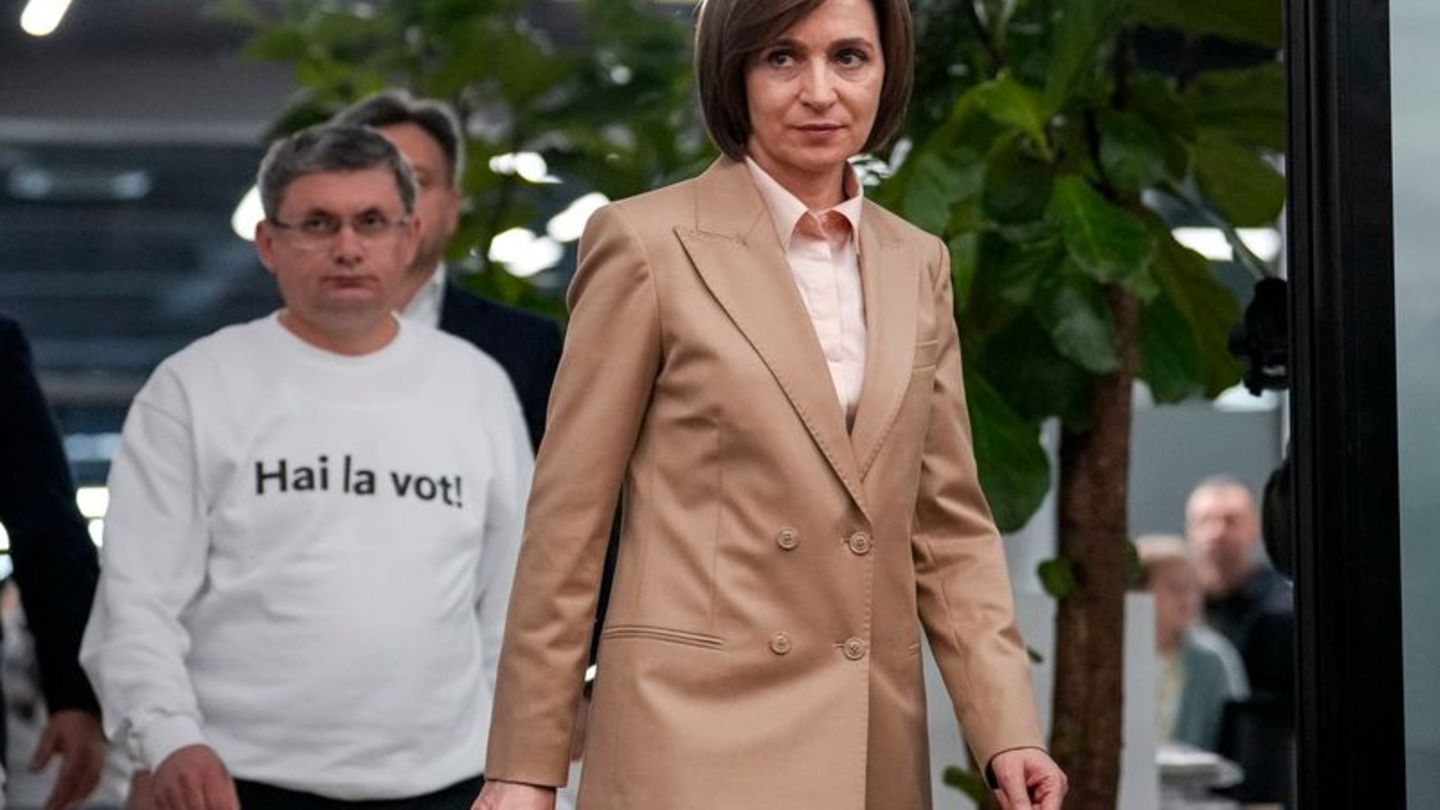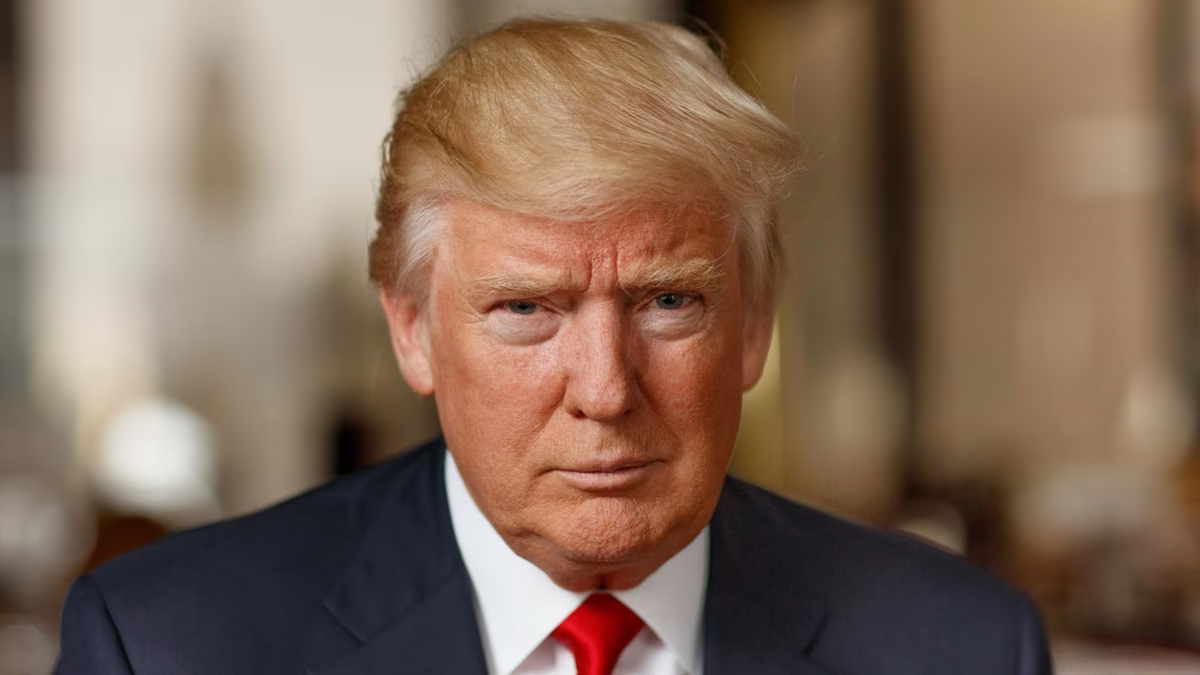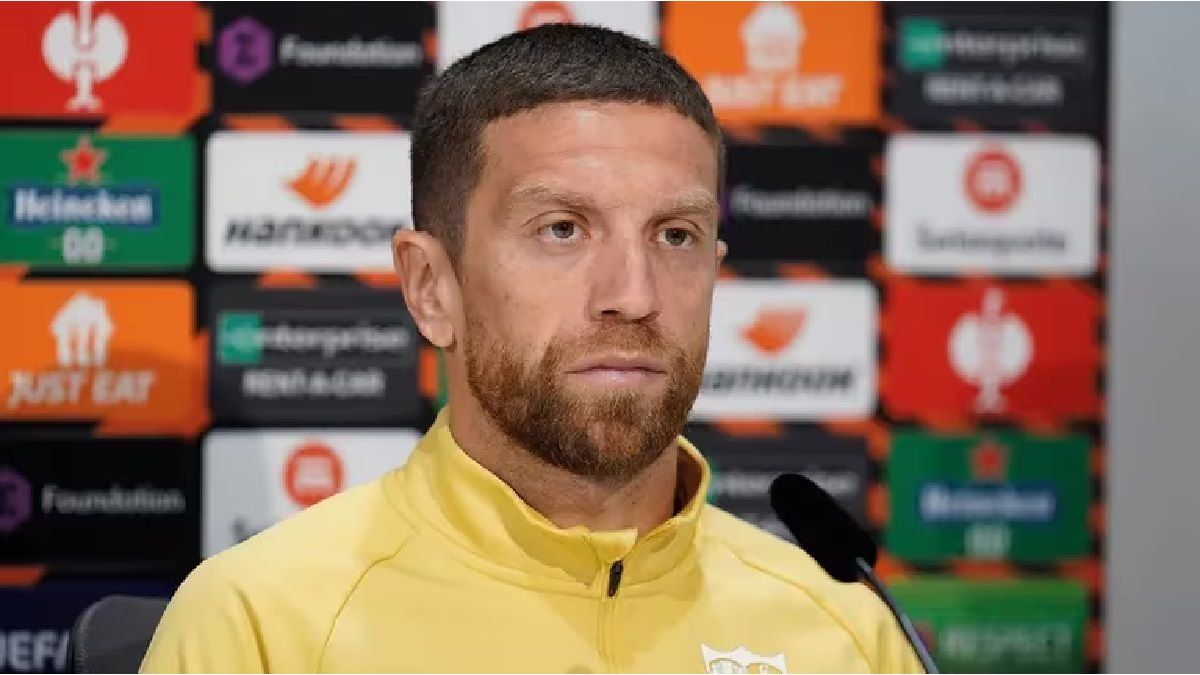In the ex-Soviet Republic of Moldova, which is wavering between the West and Russia, the pro-European course is now to be anchored in the constitution. It won’t be easy for President Sandu.
In the former Soviet Republic of Moldova, the population voted by a very thin majority in a referendum to anchor the EU course in the constitution. After all ballot papers had been counted, according to the electoral commission, 50.46 percent of participants voted in favor of enshrining a pro-European course as an unchangeable strategic goal in the constitution. That was 751,235 yes votes against 737,639 no votes (49.54 percent).
According to Moldovan media, people in the majority of regions in the country voted against the constitutional change. The tipping point in the other direction was the hundreds of thousands of Moldovans living abroad – especially in the EU. Pro-Western leader Maia Sandu thanked the diaspora for saving the vote.
Moldova, with 2.5 million inhabitants, has traditionally been torn between the West and Russia. The impoverished agricultural country, located between EU and NATO member Romania and Ukraine, which is attacked by Russia, is a candidate for EU membership.
The 52-year-old Sandu, who also won the presidential election in the first round, had expected a significantly better result. According to observers, she did not emerge stronger from election Sunday.
The referendum is valid, but must be confirmed by the Constitutional Court. The judges could still overturn it because of irregularities. If they confirm it, the constitution will be changed.
Election observer: Voting well organized
In the presidential election held at the same time, Sandu was the first to finish among the eleven candidates, but missed the absolute majority and therefore has to go to a runoff in two weeks. Sandu asked for the votes of those voters who voted for one of the four other pro-European candidates.
The double vote was well organized – especially in view of the attempted influence from outside, according to observers from the Organization for Security and Cooperation in Europe (OSCE). However, short-term changes to the law before the election were criticized. The Moldovan leadership’s campaign for a yes to the EU, combined with Sandu’s fight for re-election, put other candidates at a disadvantage, the OSCE observers said.
Decision on presidential office on November 3rd
According to the electoral commission, turnout in the vote for the presidency was 51.68 percent. After the ballot papers were counted, Sandu received around 42.45 percent of the vote. In the second round on November 3rd, former Attorney General Alexandru Stoianoglo will be her opponent. He received 25.98 percent of the vote and ran for the traditionally strong Socialist Party of pro-Russian former President Igor Dodon.
Pro-Russian voter bribery uncovered
There is evidence that 300,000 votes were bought, Sandu said at a nightly appearance in the capital Chisinau. Tens of millions of euros were spent by criminal groups in cooperation with foreign powers to spread lies and propaganda. “We are facing an unprecedented attack on freedom and democracy in our country,” Sandu said.
The head of state did not give any details. However, Moldovan security forces had already uncovered voter bribery and pro-Russian disinformation before the vote. The federal government in Berlin condemned ongoing attempts at manipulation and influence. Russia is demanding evidence of the serious allegations made by Sandu, said Kremlin spokesman Dmitry Peskov.
Pro-Russian influence
In addition to Russia, the oligarch loyal to Moscow, Ilan Shor, who fled abroad, is considered an influential player in Moldovan politics. He was sentenced in absentia to 15 years in prison for money laundering and fraud and is wanted. According to Russian state media, Shor accused his rival Sandu of failing in the election – Moldova does not need the EU.
Russia accuses the European Union of influencing the vote by promising billions of euros. During a visit to Chisinau and a meeting with Sandu shortly before the vote, EU Commission President Ursula von der Leyen promised 1.8 billion euros in funding. The financial injection is stated to be primarily intended to stimulate growth, create jobs and improve services and infrastructure.
Criticism of the referendum and Sandu’s politics
There was also some sharp criticism on election Sunday that Sandu linked the presidential election and the EU referendum. Several politicians from parties in the pro-Russia camp boycotted the referendum and spoke of an illegal process. “Talks with the European Union should continue, but the decision on EU membership should only be made after the conclusion of these negotiations, when all conditions are clear,” said former President Dodon. Only then would a referendum be possible.
The field of candidates in the presidential election was probably so large because many people are dissatisfied with Sandu’s politics. They have seen too little progress since their election in 2020 – for example in the repeatedly proclaimed fight against corruption. Because it imposed a ban on Russian gas, energy prices rose, which angered many consumers.
In order to implement reforms, Sandu depends on a majority in parliament, which she currently still has. The political power struggle in Moldova could reach its climax in next summer’s parliamentary elections. “For a strong, policy-shaping role as president, a loyal prime minister and a majority in parliament are necessary,” said expert Brigitta Triebel from the Konrad Adenauer Foundation in Chisinau to the German Press Agency. She does not expect Russia’s attempted influence in Moldova to abate.
Source: Stern
I have been working in the news industry for over 6 years, first as a reporter and now as an editor. I have covered politics extensively, and my work has appeared in major newspapers and online news outlets around the world. In addition to my writing, I also contribute regularly to 24 Hours World.




